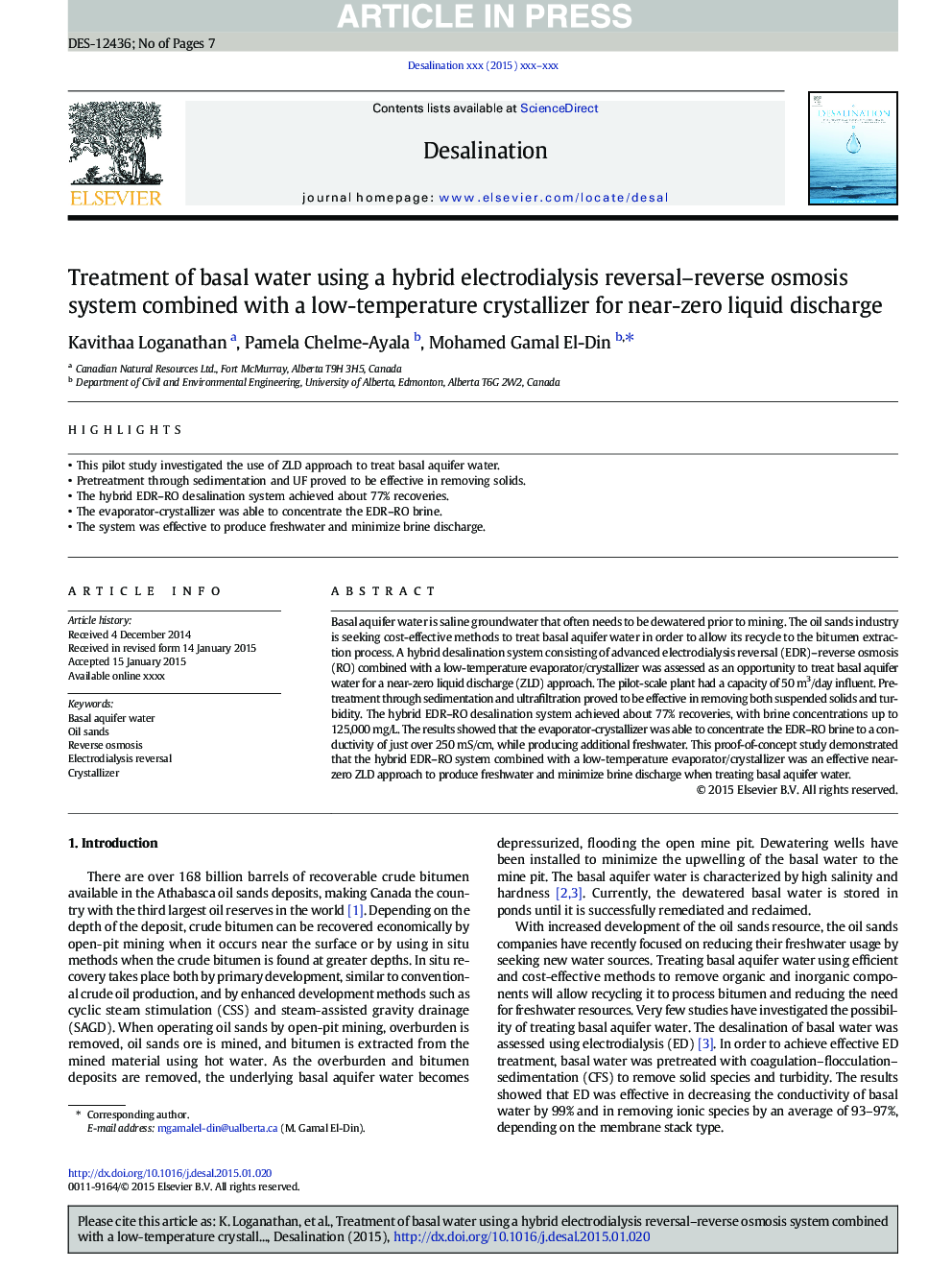| Article ID | Journal | Published Year | Pages | File Type |
|---|---|---|---|---|
| 623122 | Desalination | 2015 | 7 Pages |
Abstract
Basal aquifer water is saline groundwater that often needs to be dewatered prior to mining. The oil sands industry is seeking cost-effective methods to treat basal aquifer water in order to allow its recycle to the bitumen extraction process. A hybrid desalination system consisting of advanced electrodialysis reversal (EDR)-reverse osmosis (RO) combined with a low-temperature evaporator/crystallizer was assessed as an opportunity to treat basal aquifer water for a near-zero liquid discharge (ZLD) approach. The pilot-scale plant had a capacity of 50Â m3/day influent. Pretreatment through sedimentation and ultrafiltration proved to be effective in removing both suspended solids and turbidity. The hybrid EDR-RO desalination system achieved about 77% recoveries, with brine concentrations up to 125,000Â mg/L. The results showed that the evaporator-crystallizer was able to concentrate the EDR-RO brine to a conductivity of just over 250Â mS/cm, while producing additional freshwater. This proof-of-concept study demonstrated that the hybrid EDR-RO system combined with a low-temperature evaporator/crystallizer was an effective near-zero ZLD approach to produce freshwater and minimize brine discharge when treating basal aquifer water.
Related Topics
Physical Sciences and Engineering
Chemical Engineering
Filtration and Separation
Authors
Kavithaa Loganathan, Pamela Chelme-Ayala, Mohamed Gamal El-Din,
